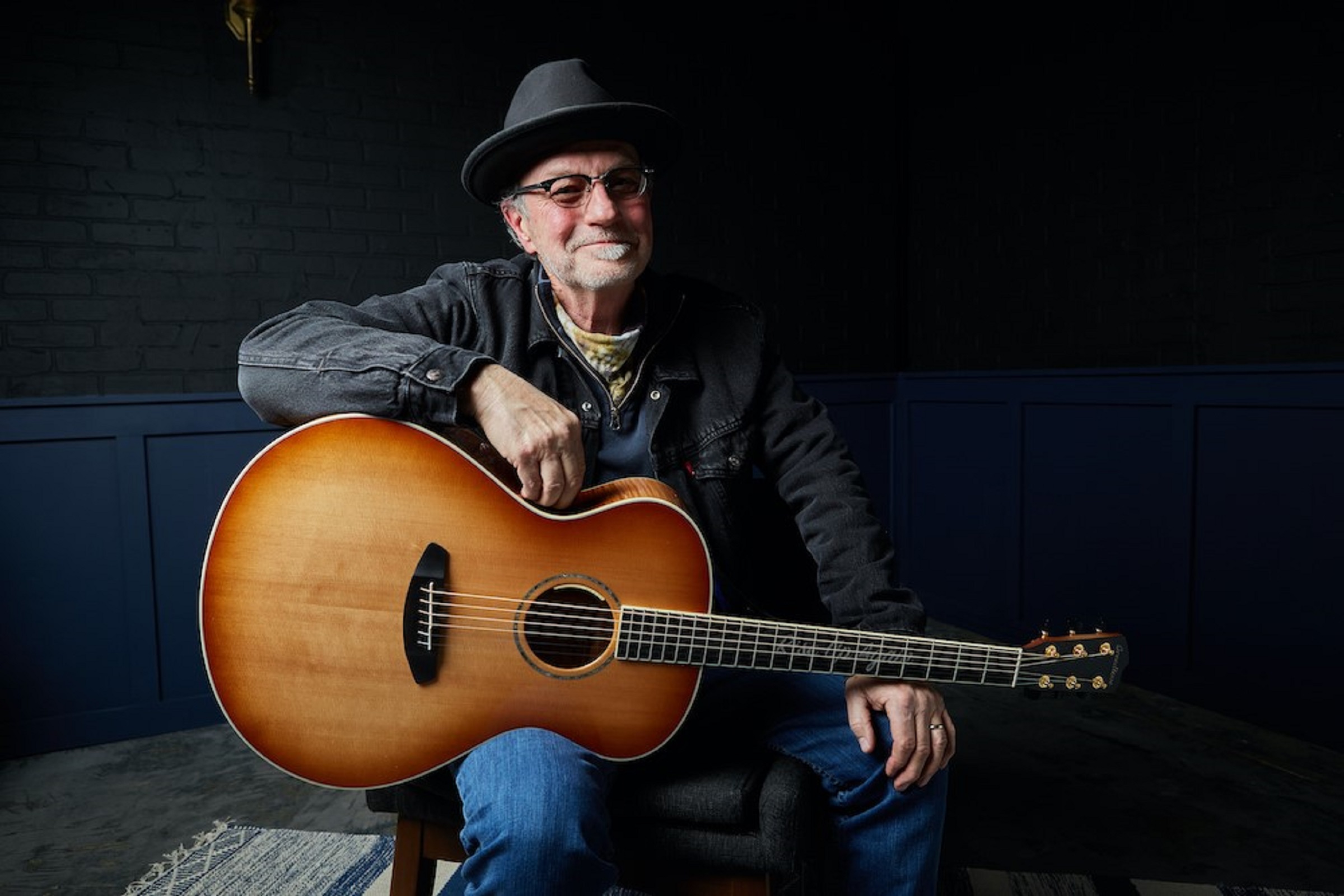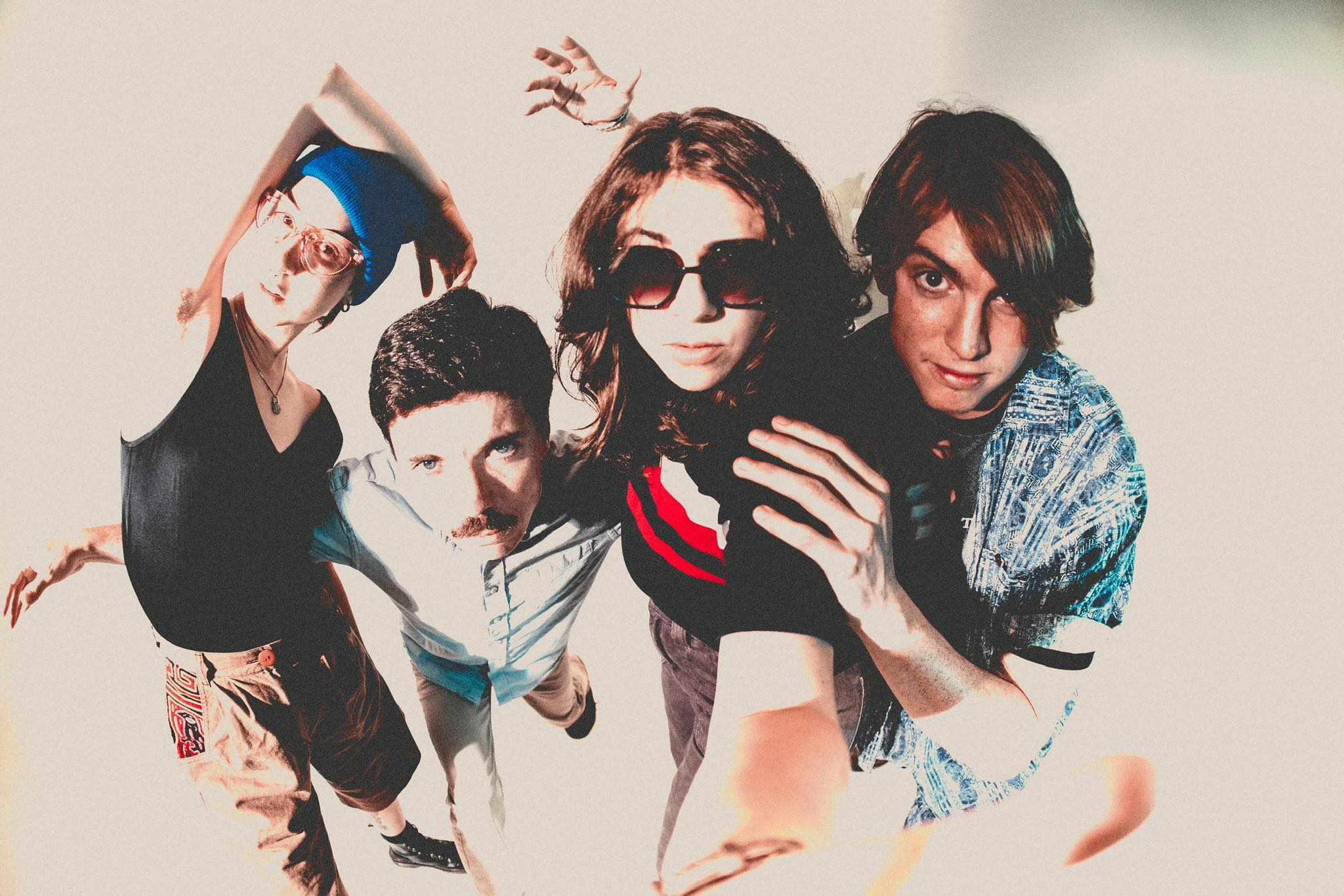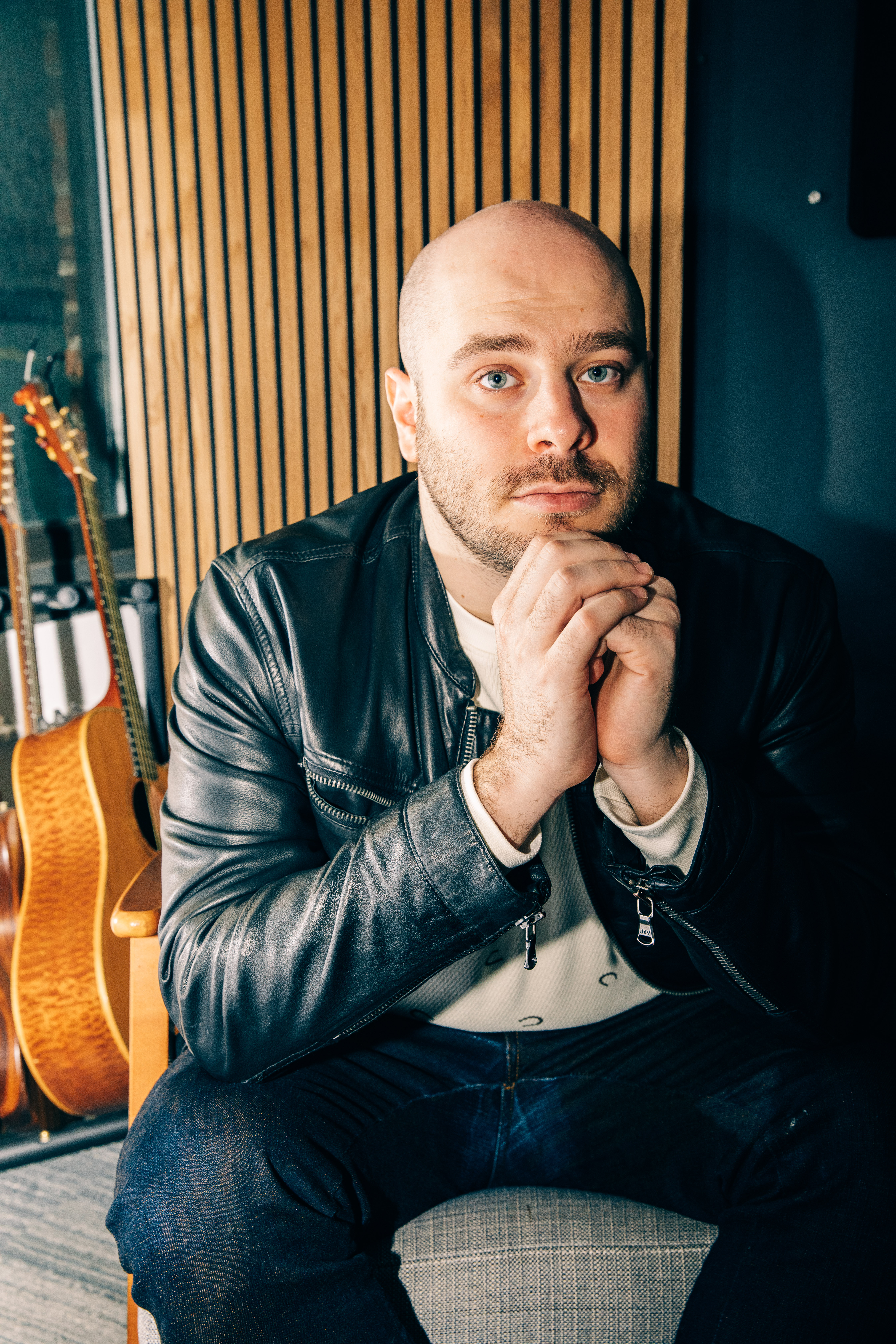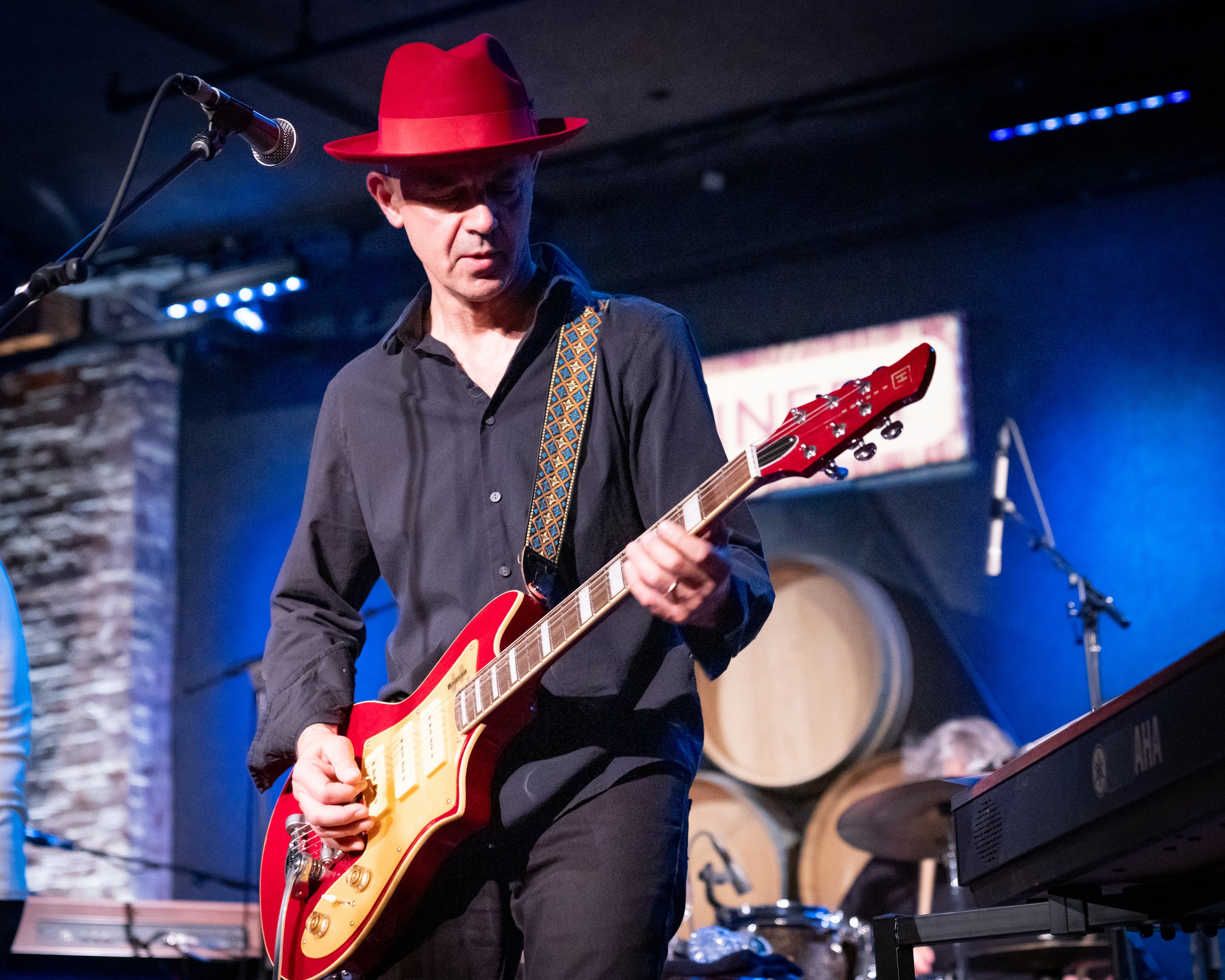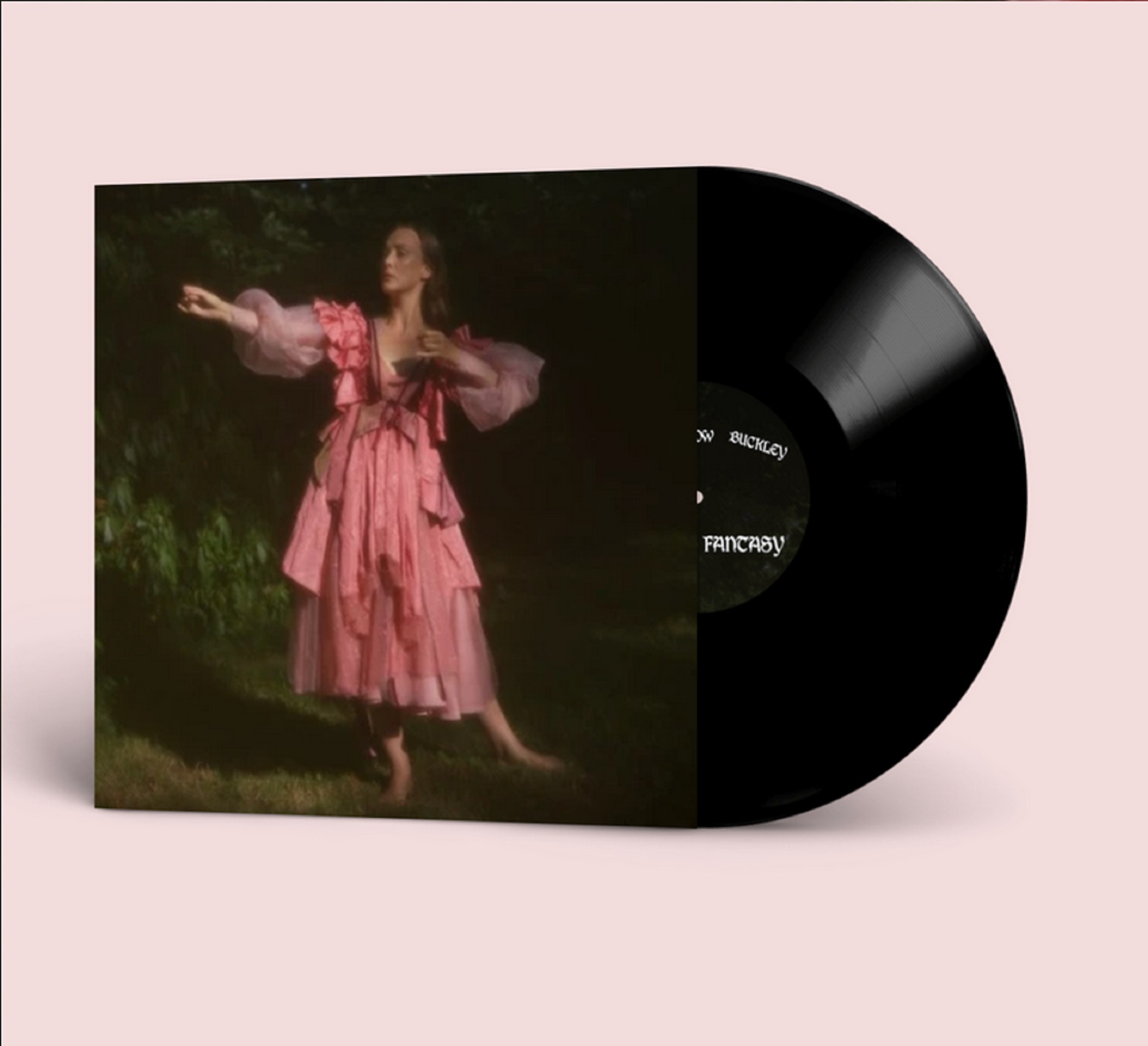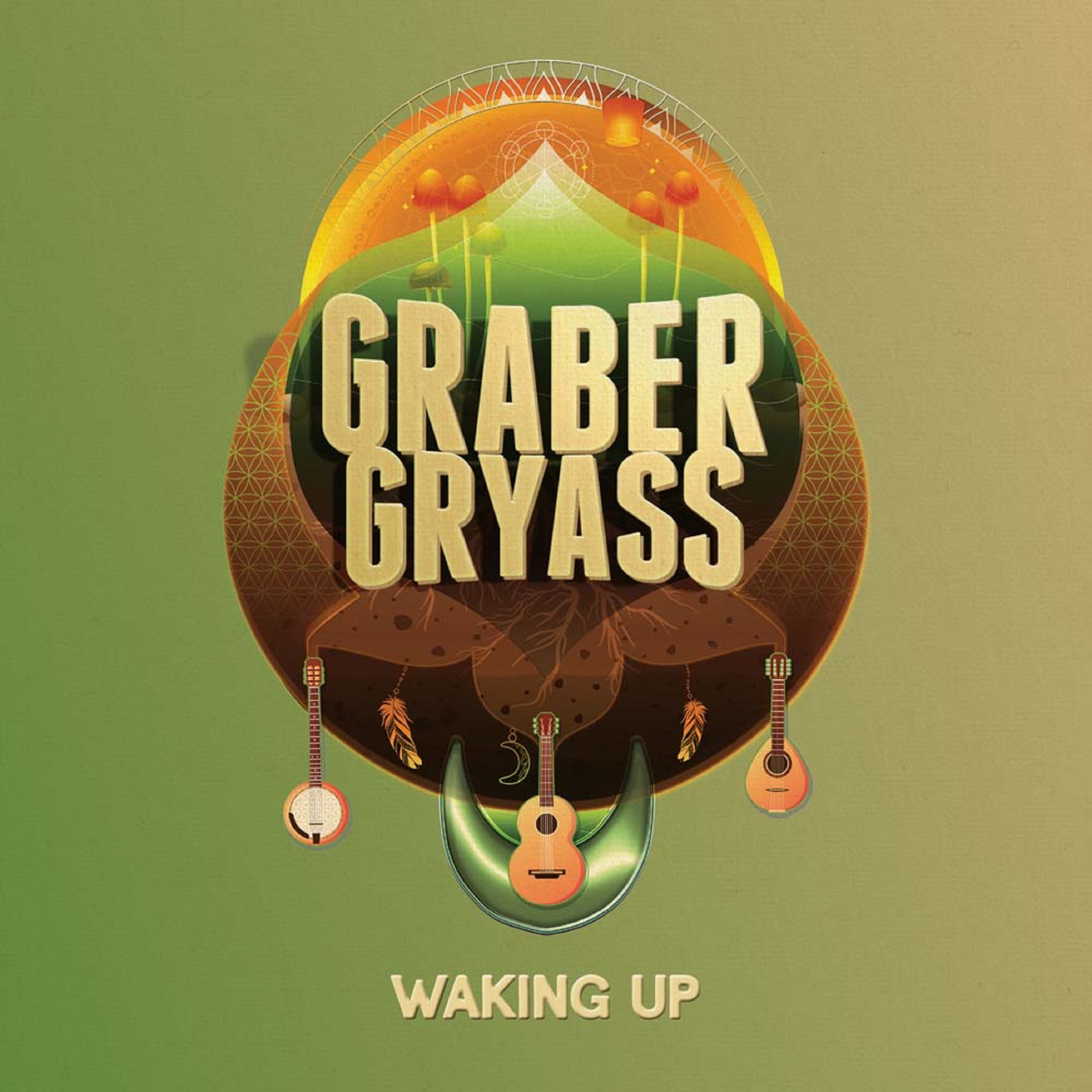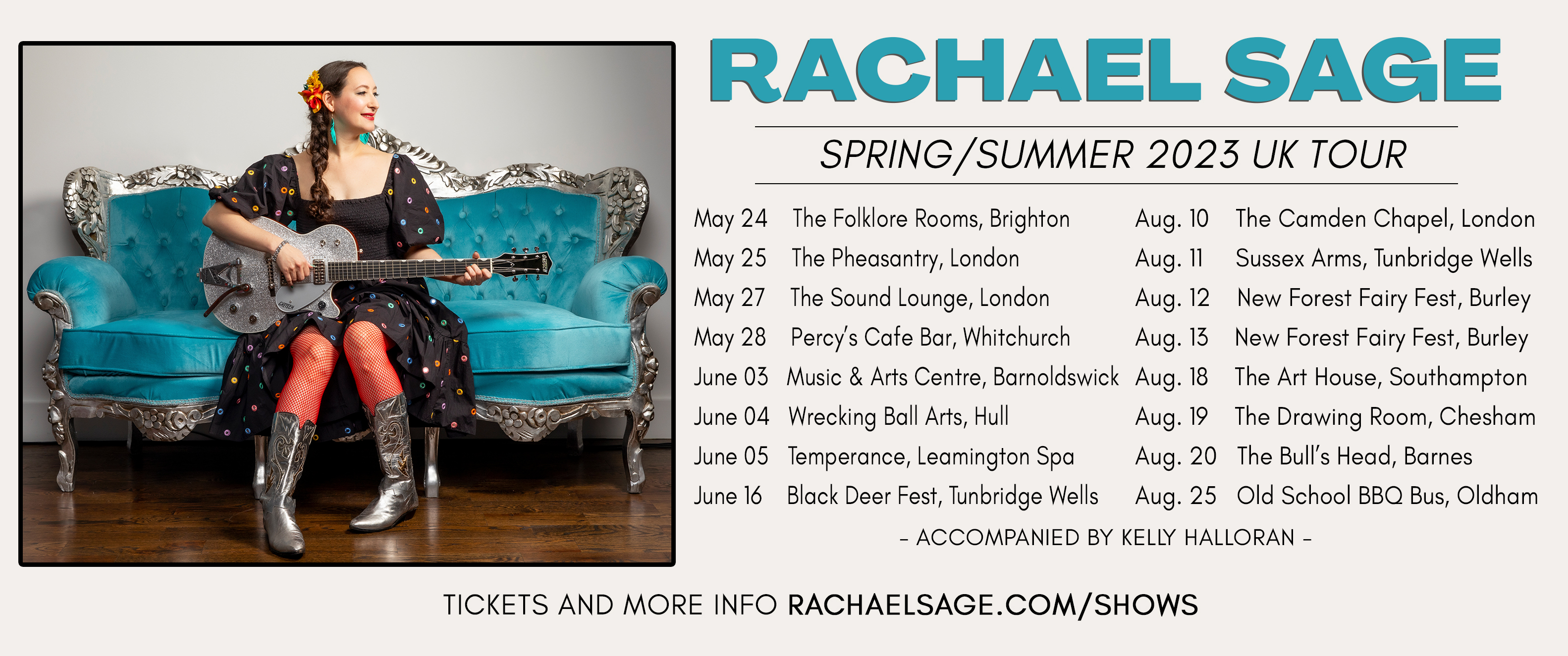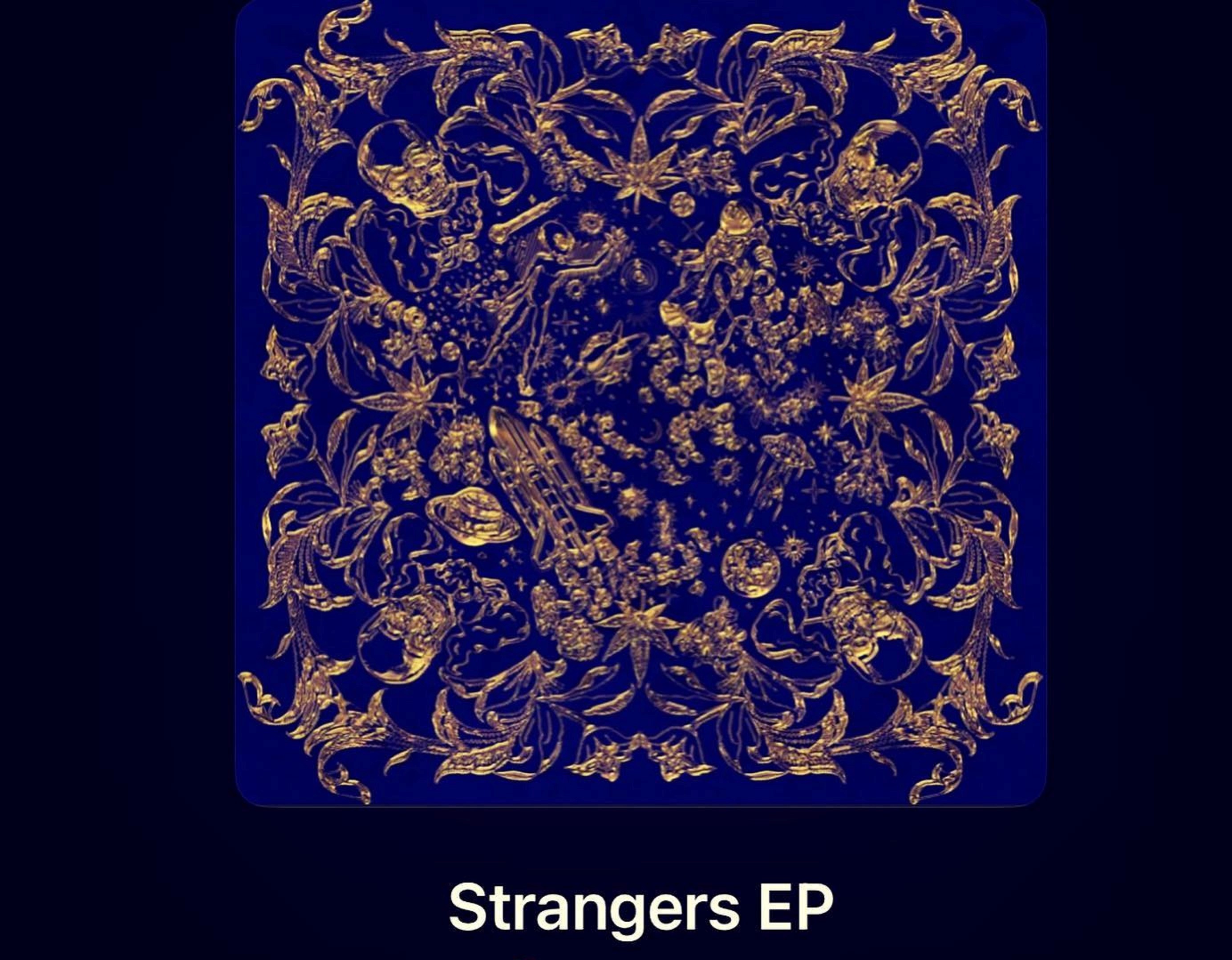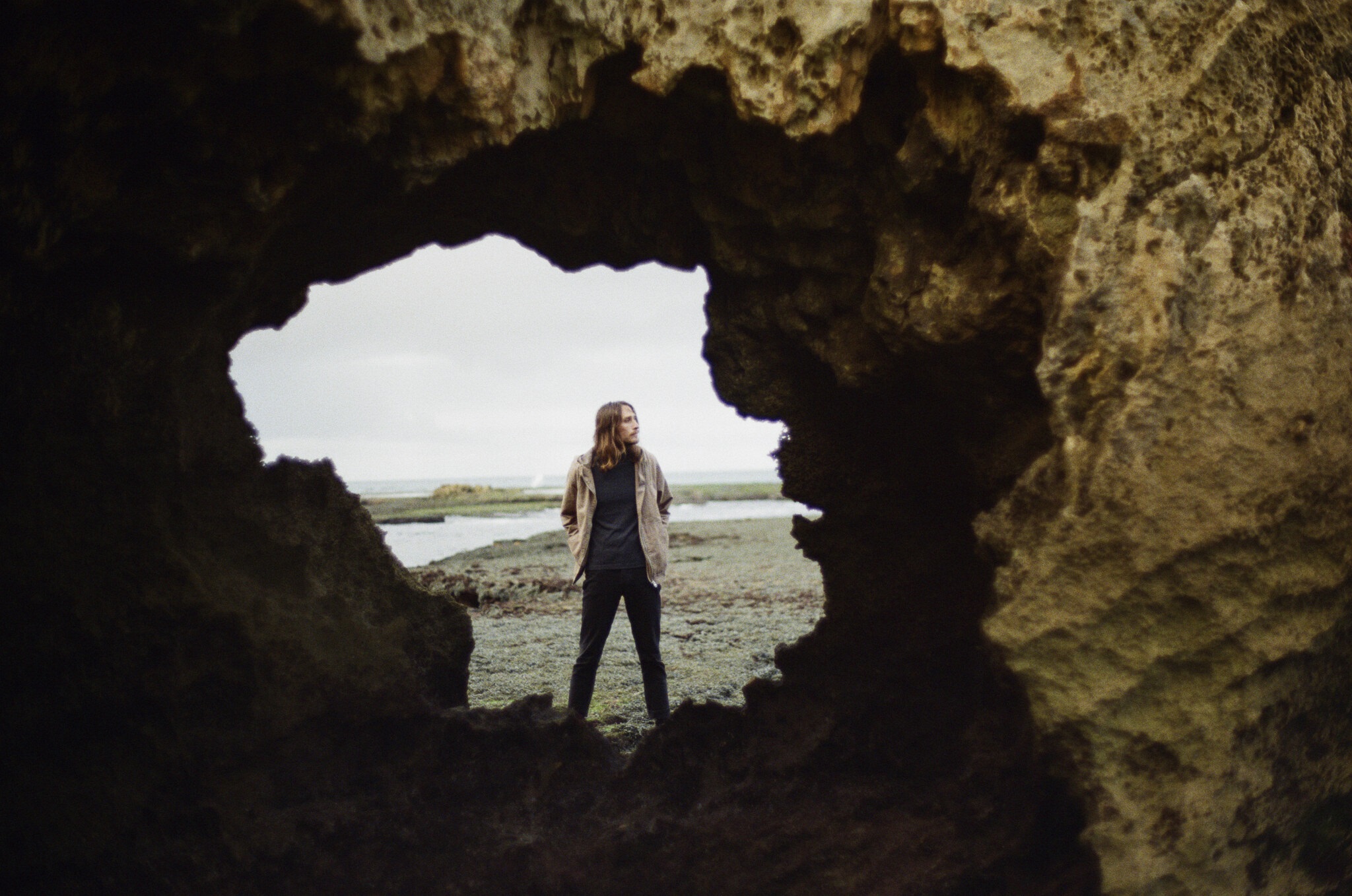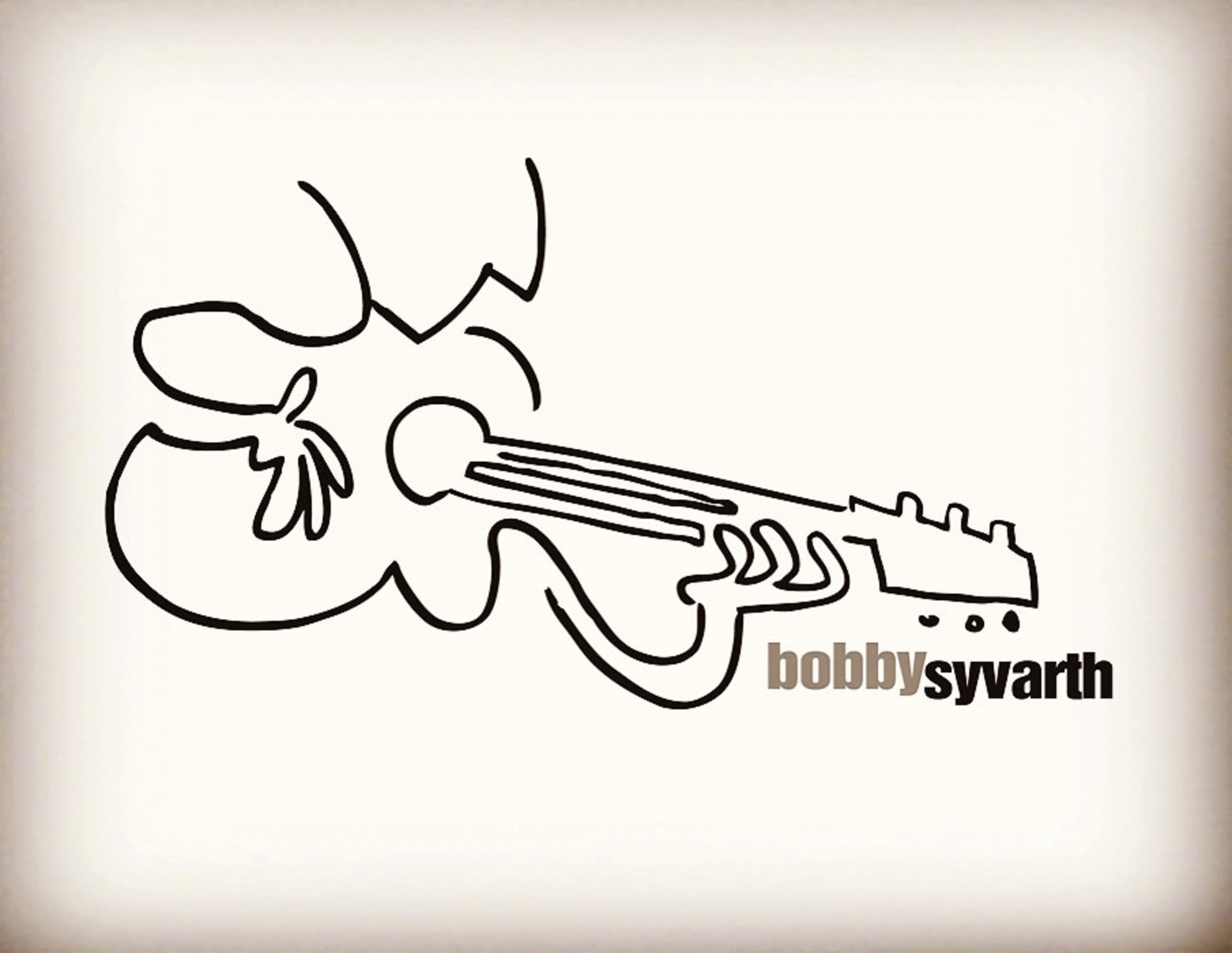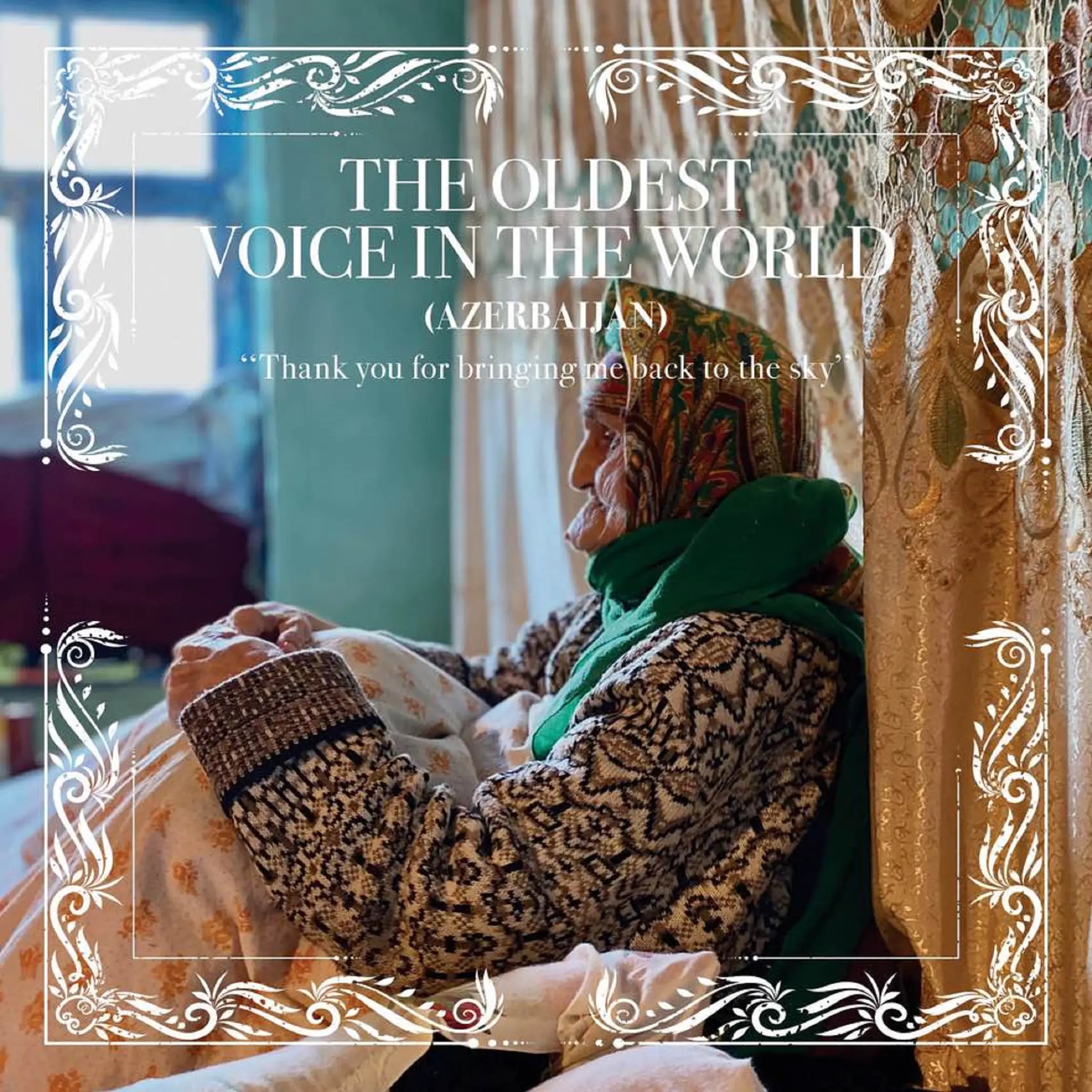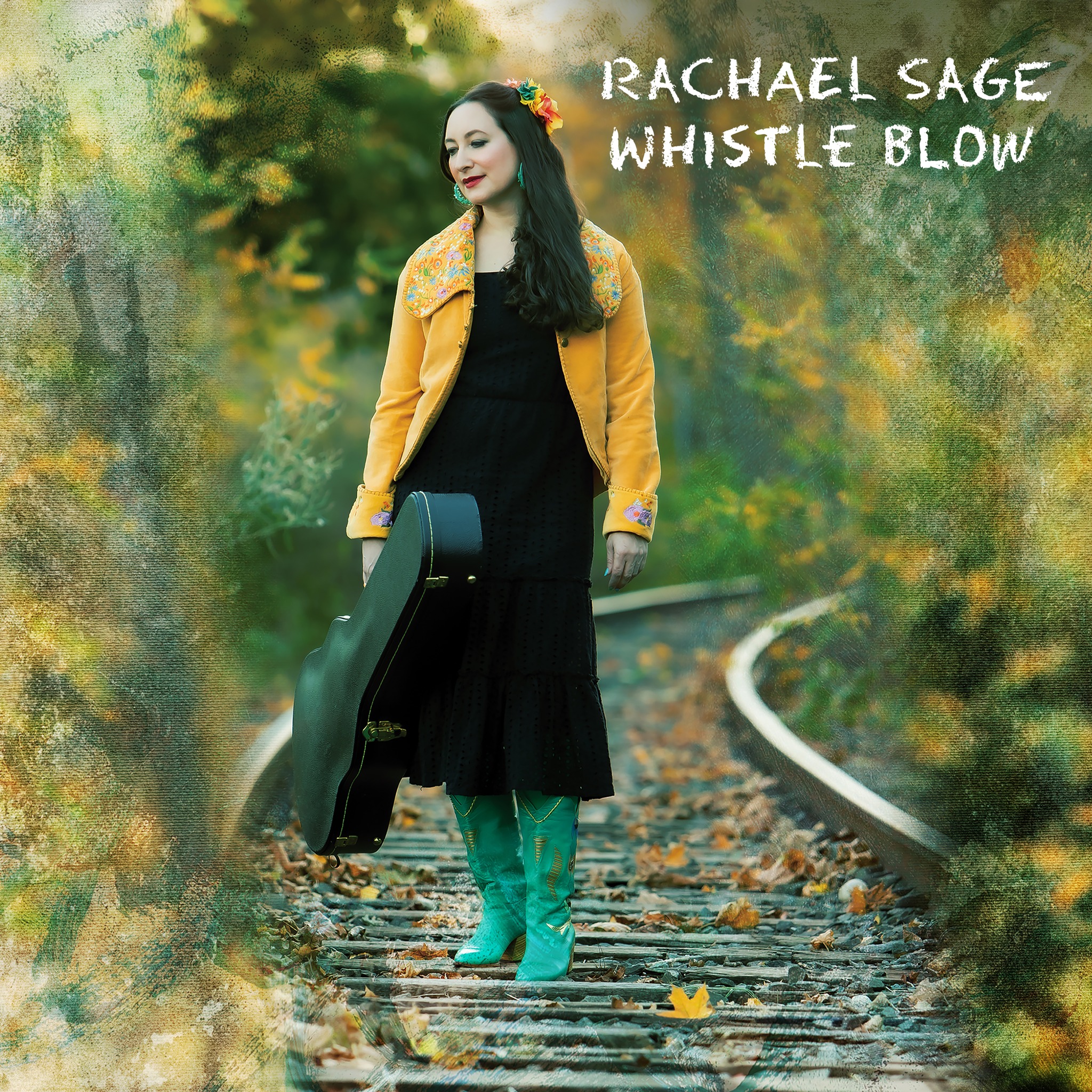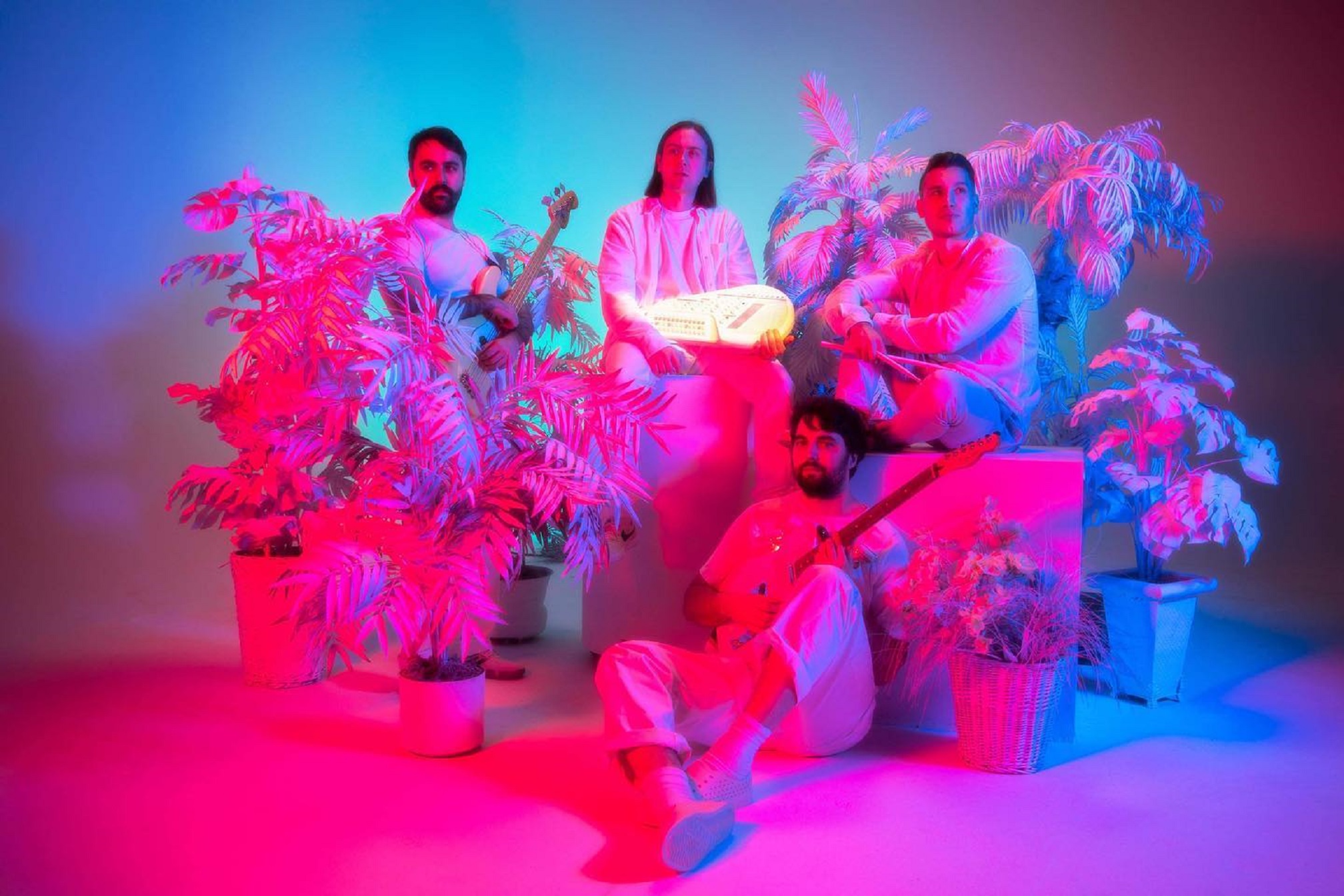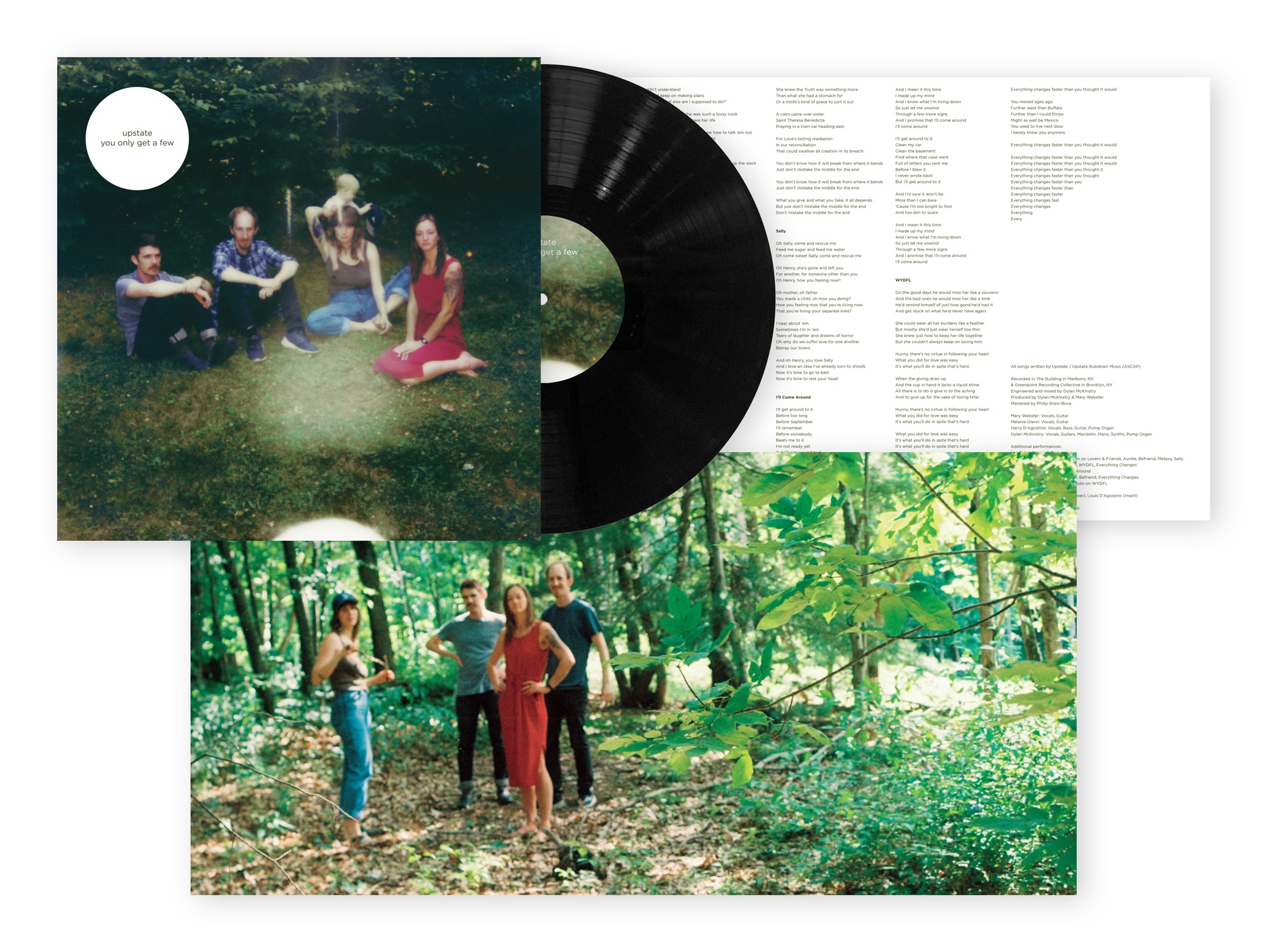Grateful Web is pleased to premiere Americana singer/songwriter David Starr’s new video “Any Chance of Going Home.” This unexpectedly darker themed song is from his forthcoming EP, Better Me, which is set to be released in early 2023, and features bluegrass songstress, Irene Kelley.
Starr used his long-honed songwriting craft to write a story around a stranger he encountered early one morning. “I watched an unknown older man in my small Colorado town one morning as he very deliberately prepared to smoke a cigarette in the dawn light. I'd never seen him before and wondered what his story might be,” Starr shares in a press release. “Several phrases and ideas from my notebook merged to write his ‘story.’ While he remains a mystery to me, he seemed like a bit of a lost soul. I never saw him again and still don't know who he is."
This past week, David Starr sat down with the Grateful Web for a conversation. Read on to learn more about the humble and kind artist behind “Any Chance of Going Home.”
GW: When I listened to your song, “Any Chance of Going Home” this morning, I definitely shed a tear. Strong imagery. I wrote down some of the images that stood out to me: “he lit the ragged end,” “a tattoo on her thigh,” “when a bitter wind tore holes in childish dreams,” and so many more. I am wondering where your imagery comes from? And also, your storytelling? Is there anything in your background that makes you a storyteller?
DS: Well, I like a good story for starters. You know it's that old, “show, don’t tell” thing. I like to create a palate where people can sort of see where I am. Now, in this particular song, “No Chance of Going Home,” it's interesting that you bring that up, because that is the reason, I like this song a lot. That song came from one morning when I came into town. I live about 7 miles from town, up higher, on a mountain. I come into town to have coffee with some guys every morning, which keeps me centered, and in the know, here in this little town. I’m sitting in the store one morning, in my guitar store, before it opens. It's early. It's barely light outside, and there's a little park bench that a guy built for me. And there's an old man sitting on the bench, and I don't know him, which is odd, because you know in a little town you know folks, right? You see them. This guy was sitting there, and he was literally doing the thing with the cigarette, and he was breaking it off, and doing some— you know, I don't smoke cigarettes, but I know people have their rituals and routines with their habits. Some people have to mix a drink a certain way, and for some people it's their cigarettes. Other people, it's their food. Anyway, that's as far as it got, and I thought to myself, I don't know who that guy is. I wondered what his story was. So then I thought, Write it. Write his story. And in that particular instance, I had pieces, parts, and images. I like to read about the Dust Bowl. I'm currently rereading Timothy Egan's book about the Dust Bowl, and that part about “when a bitter wind tore holes in childish dreams” came from the idea that people all went west to live out their dream, and the winds just took it away from them. Another example is my father, who was not a man of many words. He pretty much kept to himself. But one day I said to him, “You know, I don't even know where you were born.” This was a few years before he died. He said, “It doesn't matter. It blew away.” I found out that it was a town out in Western Oklahoma that did literally just blow away. There's nothing left of it. There's nothing there. Yes, it shows up in Wikipedia as a town that was there, but there's nothing there, so I write down those little pictures in my mind. Those little three-minute movies. I put them in my phone, or wherever I'm writing stuff down, and when that song began to take form after I saw that old man, there were some other little pieces and parts, and I thought, That's his story. I'm going to write his story, which for me was not a breakthrough, but it was a bit of a step up, because sometimes I find— and I’m not the only songwriter, but you tend to write about stuff that's too close to you, and I admire people who can just pluck something out of thin air, and create something, so that's what I did in this case. Where did it come from? I don't know. My grandfather was a writer. He was a columnist, and he wrote books, and some of them were fiction, and some were non-fiction. He was a writer, and yet I never read his books until the last few years. I like to think it's some kind of archetypal thing that's in there, but that's the magic, right?
GW: Can you tell me more about the writing of your grandfather and the influence it had on you? Why didn’t you read his books until recently?
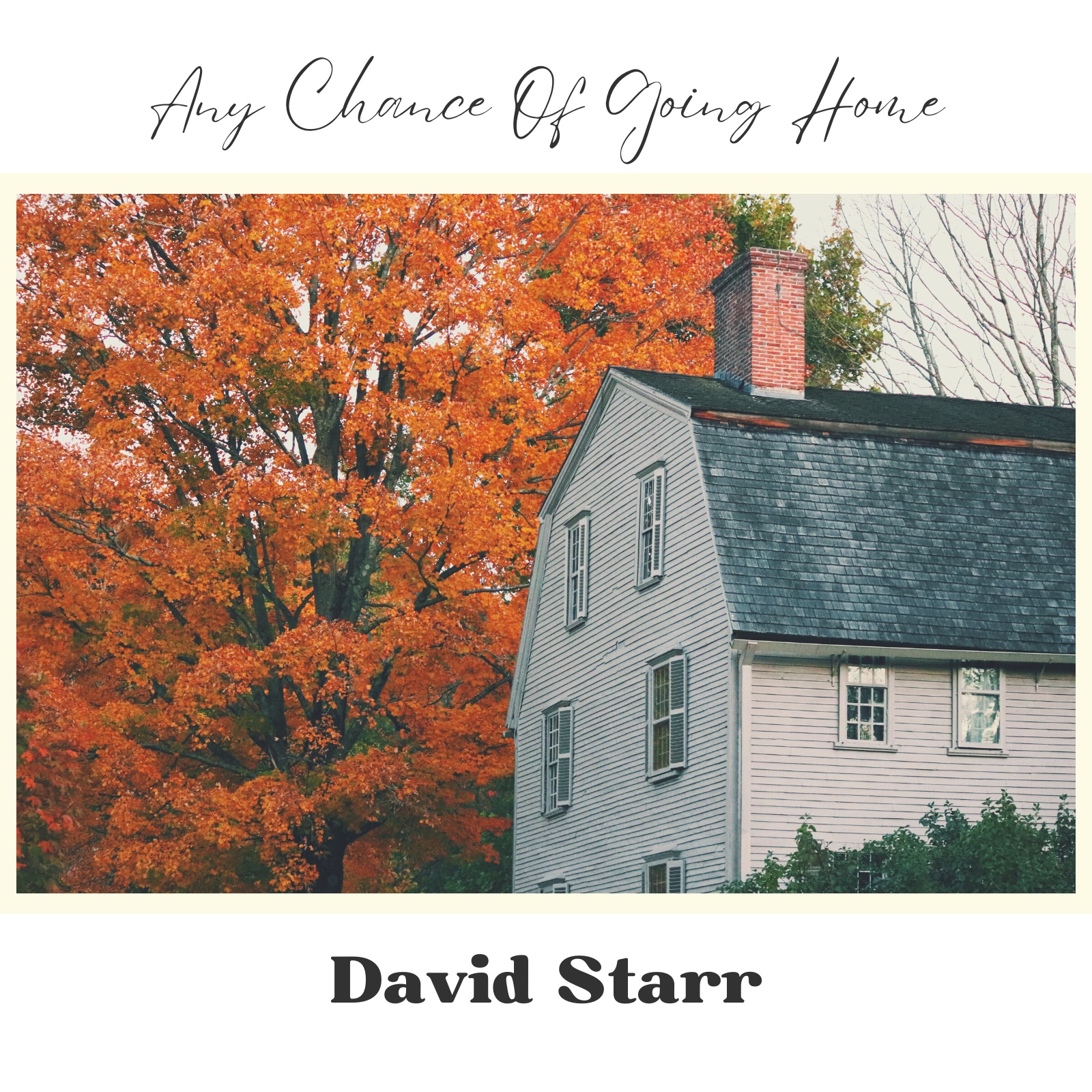
DS: Going back to when I was a kid, he wrote these books, and I was aware of that, but my time with him was spent riding horses and learning about stuff around his little farm in Northwest Arkansas. Going on walks in the woods, and all that stuff. He wrote these books, and he had a publisher, but it wasn't a big publishing deal. Not where there's distribution, and all that. It seems to me, looking back, that he would get this box of books from the publisher, and he'd go to a big antique fair, or a craft fair, or a county fair, or some event where there were going to be people milling around, shopping, and looking at stuff on a fall day, and he would set up a little card table with a chair and a box of books, and he would say, “Hi, I’m! Fred Starr and I wrote this book. Would you like to buy it?” He also had a newspaper column, so a lot of people knew who he was, and he wrote about the people of the Ozarks. He wrote about high hills and tall tales, you know? It was almost a Mark Twain folklorist approach. Looking back, he was doing what we do now as musicians when we go to a gig and sell CDs off the edge of the stage. It's the same kind of thing. So that was his way of getting that creativity out to the world, even at the age of 77 when he died. He had just published his last book. I never read those books because that didn't interest me. I thought that was just something the old guy did, right? Probably like my grandkids think about me making records. Someday they'll see it differently, I'm sure of it. But one day, about eight or nine years ago, I read the last book that he wrote, and I was taken again. Like what you said about the imagery— I was taken by the landscape, the people, the pictures he painted of these people, and their lives. And then just human nature. The humanness of how we mess things up when we shouldn't, and we make one decision that sends everything off a cliff. That takes everybody with us. And so I read that book, and that's when I went to John Oates and I said, “You know, there are songs in here.” And he read the book, and he agreed. My idea was to give that book to some writers and say, “Let's all write songs inspired by the book.” But again, it started with imagery. He would paint a picture of the yellow grass on the sandy soil with the sun going down, and I thought, Man, that's beautiful. That's poetry to me.
GW: I find it very impressive that he was so committed to his art, to his writing, especially being a man of that generation, living in a rural area. Creativity wasn't always encouraged, especially back then.
DS: He had a paper route. I'd get up with him at four in the morning, and they'd bring the papers by, and we'd fold them all up, and then we would get in his car, and go put them in the paper boxes before everybody got up. So, he did a lot of things because he had to to make a living. And I think all of it supported his writing, which is classic starving artist stuff, but it never seemed like they were starving. They grew up during the depression, and were very— we always had leftovers, you know?
GW: Can you tell me a bit more about your childhood in Arkansas?
DS: I hung out with my grandparents a lot. They had a farm, and I pretty much grew up out in the country. We had forty acres, which seemed like a million acres to me at the time. My dog and I would roam that all day long. I had buddies, and we'd get on our bicycles and ride into town, and our parents wouldn't see us for ten hours, and then we'd show up at dinner time. It was a different time, probably a safer time than it is now, or seemingly so. On weekends, I would hang out at the guitar store, so that's where that seed was planted. I just liked being around the instruments, the people, the stories, and the older guys talking about playing gigs. It was an interesting time in Northwest Arkansas, because Walmart was a brand-new thing, and that's where it started. Tyson Foods was a young company. My father worked for them. As somebody who's always had one foot in the business world a little bit, even as a young person, watching my father in business, I was aware that there was this momentum or inertia, in Northwest Arkansas. There were people around us who started out with Sam Walton doing nothing important, and wound up very wealthy. There was a lot of that. It was a time when there was a lot of growth in the area, so that was kind of cool. But at some point, my first wife and I, who had known each other since Junior High, it was kind of her idea, she said, “We should go somewhere else for a while and get out of our comfort zone,” and that's why we moved to Aspen. But Fayeville, Arkansas, when I left there in 1981, the town was, I don't know, under 30,000, and it's 95,000 or 100,000 now. And that's just the town limits. That entire area has just boomed. A lot of it is Walmart, and Proctor and Gamble is there now. And some people in Northwest Arkansas have really put a lot of money into the arts. There's a museum there that's second to none. Alice Walton. You know Rosie the Riveter, the painting by Norman Rockwell? She owns the original. It's there in that museum. That's the kind of stuff that's in that museum. Not a poster, but the real deal. There’s millions and millions of dollars being plowed into that part of the state, in the name of the arts. You know I've got grandkids there, and I'm glad they're able to grow up around all that.
GW: So in your song, “Any Chance of Going Home” this idea of more than likely dying alone, and losing the chance of ever going home— it is so sad. Where does the theme of losing a home come from?
DS: Getting back to my grandad's book, and leading up to your question, the name of his book was Of What Was, Nothing is Left. I think sometimes we're longing for stuff, and it's this undefined, free-floating anxiety about what it is we really want, and a lot of times, particularly as I get older, I think it is home, but you have to reconcile with the idea that home is something else now. It's not the house with the broken swing you played on. It's not the house where you learned to walk as a little baby. It is something else. Now, you have to make home for yourself. But in that song, I think the character, or the protagonist was looking back on decisions made. Maybe somebody that he loved, and she's gone. Whether she's still living or not, I don't know. Maybe she's just somewhere else, and he just has to reckon with the fact that whatever that home was, is not there anymore. So he has to figure out some other place to be. And things can change in a home. Maybe your parents die, or maybe they split up, and that home never feels the same again. There’s a line in there, “Sometimes circumstances lay waste to best laid plans,” meaning you can have these plans, but life is going to come at you, and it's going to do what it's going to do, and you can only control so much. I think the character in that song is just reckoning with that. You almost have to do that on a daily, or weekly basis, because it's changing all the time. He seems like a sad character, and maybe that's me a little bit. I don't know, probably.
GW: Even the image of the dog hit close to home. My boy has been with me since 2009, so he is getting up there in age. I have been thinking about that lately. Wondering what I am going to do without that companionship.
DS: I had this discussion with my older brother who lost a dog early this year. He had this little dog that sat on his lap a lot. My brother retired, and then it was with him constantly, and it didn't really want to be with anybody else. I don't think I ever really got to pet the dog. It wasn't all that socialized for other people, but that was his friend. We were talking one day, and he just said, “You know dogs take on a lot in a house.” Dogs absorb a lot, and they know what the mood is in a home. If the kids are rowdy, they get rowdy. Dogs are so special. My wife and I have one right now. It is interesting that you say that it affected you because I've gotten more Facebook messages, and more emails, just in the few days that the song has been out about it affecting people. And it seemed almost unfair to put that out of the holidays, because it's kind of dark, but the holidays aren't bright for everybody. They just aren’t.
GW: So, you’ve got Irene Kelley doing vocals on this track. How did you start collaborating with her?
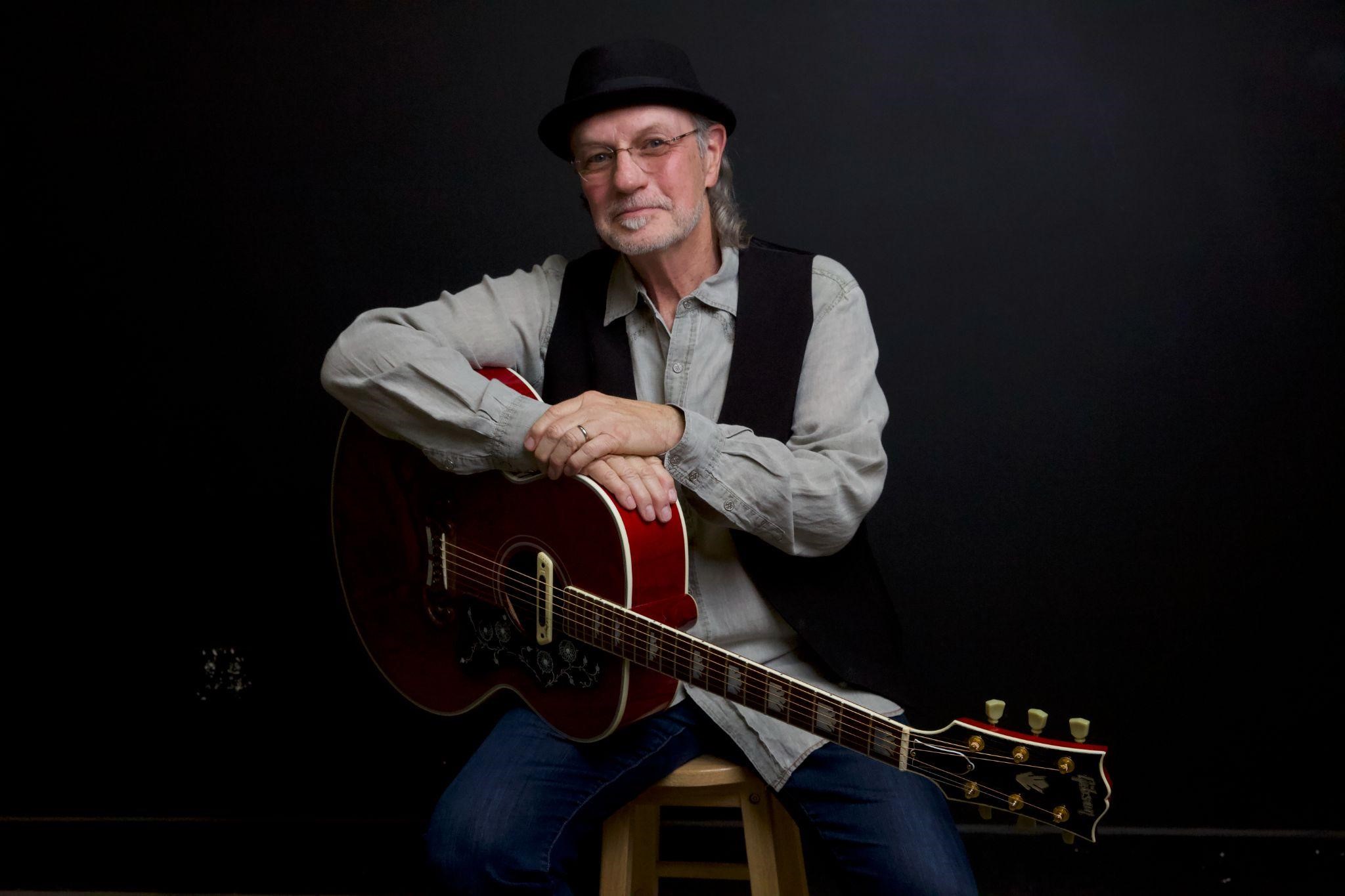
DS: Well, the people who run the PR agency at Richlynn Group who do PR for me— several years ago, there was a guy working there, who has now moved on to something else in Nashville, but he was sort of my contact there at the agency, and one day he said, “Do you want to do some co-writing? And I said, “I'd like that, but I don't really know anybody in Nashville to do that with.” It was not brand new for me to do co-writing, but it wasn't something I felt as comfortable with as I do now. Anyway, there were three or four people, and one of them was Irene, and we agreed to meet up. We went over to her house, because she lives in Nashville, and I took a guitar and legal pad. When you go to something like that, you want to have several ideas, and then the other person has several ideas, and hopefully you meet in the middle and come up with something you can agree on, and make some magic. I got there, and the very first day I met Irene, she had just gotten a puppy, and found out that it was terminally ill, and she was not in a good frame of mind. Obviously, for good reason. She was very sad about that. So I said, “Well, maybe today's not a good day.” And she said, “No, I need this. It'd be good to take my mind off of it.” So we wrote a song, and I don't think either of us have ever recorded it yet, but in that particular instance, things clicked pretty well. She's really good with melody and music. I always show up with lots of words, maybe too many words. A little more verbose. So between the two of us, we managed to write that song, and then every time I've had a project, I've said, “Come on, write one with me, or sing on it.” There is one of the songs called “Highway Back to You” that was on one of her Bluegrass records. She's quite a good singer, quite a good artist, and there's an earnestness in her voice that I thought this song would really benefit from.
GW: Can you tell me how you started working with John Oates?
DS: First of all, I lived in the Roaring Fork Valley, which is close to where Aspen is. It's not that far, as a crow flies, but it's kind of hard to get there through the mountains on a snowy day. I didn't meet John when I lived there because he moved there after I left, but he's got a home over there, and has been there for a long time. Everybody in the valley knows John, and he tours from out of there. Some friends of mine were in his band that he would use as a backing band when he and Darryl weren't out on the road doing the Hall and Oates thing. So they knew him, and they knew me, and one day they said to me, “We should get John to come over and do a gig.” One thing led to another, and he agreed to do it. We got together and did that gig with a full band. Then we did another one down in my hometown of Northwest Arkansas. Fayetteville, Arkansas. He actually had roots there, because he had an uncle that I was aware of when I was growing up. This uncle of his, who was a doctor in town, always talked about little Johnny, his nephew. Very proud of him. So anyway, I did a show there, and then we did a couple of shows just as a duo, which originally was his idea, and I was thrilled at that. One day I said, “I’d sure like to write a song with you.” So we did that down in Nashville one day. As time went on, I said, “I would love it if you would go into the studio with me and help me produce something.” So we did, an EP called The Head and the Heart. I was really honored to be able to do that. He's such a library of knowledge. His vocabulary of chords. His encyclopedic knowledge of the music biz. He thinks in sort of a pop format, because even though it was a very Americana record, we did want to get it on the radio. We wanted people to hear it, so he would add some things that I hadn't thought of, some twists and turns. When I read that book of my grandads I thought, You know, I’m pushing my luck to ask for another record here, but I threw it out there, and he was very receptive, and if I remember right, he said, “You know I didn't want to do another record just to be doing it, but this seemed like a cool project.” It was a concept. There was an idea behind doing it. He's extremely generous with his time. Brutally honest when something needs to be done differently, and more than anything, he has been a really good vocal coach. I think my singing improved when I started working with him. I thought more about my vocals, you know. So when I'm in the studio now, and he's not there, he's on this shoulder (gestures to shoulder) a little bit.
GW: I had a musician tell me that taking vocal lessons was the one thing that improved his songwriting the most? Would you agree with that?
DS: He didn’t give me formal vocal lessons, but I'll give you a little story. We were working late into the night one night when we did that first record, and I'd been singing all day long, and he said, “Can you keep singing?” The guys had all gone home, and it was time to redo the vocals, and I said, “Man, I'm good.” We got to the very end, and I was singing well, and I felt good about the whole thing, and I came out of the vocal booth, and I said, “That's it, that's the one,” and he looked at the engineer, and it was 9 o'clock at night, and he said, “You thought that was okay?” I said, “Yeah.” He goes, “Let me ask you a question. When you wrote that song, what were you thinking? How did you feel?” And I said, “Well, I was pissed off.” He said, “Oh. Go back in there, and do it one more time.” I went back in there, and it had just a little bit more grit and urgency. He just planted that seed of oh, yeah, that's what I was thinking. He didn't tell me how to sing. He just reminded me of why I wrote the song in the first place. I'm just honored to call him a friend and a collaborator. He’s one of the good guys.
GW: Can you tell me about your guitar store, Starr’s Guitars? How is it doing?
DS: I started in Little Rock, Arkansas in 1998. I had just spent about eleven years in the financial services business when I moved back from Aspen to central Arkansas. I left Aspen to slow down a little bit. I played five or six nights a week, and worked a day job, so I was worn out. My first wife and I had a baby. It was a very difficult pregnancy, and it was dangerous and scary. Everybody's okay, but it was a good time to dial it back. The nightlife for somebody in their twenties can be hazardous territory. So we went down there, and I got a normal job. Never quit playing, but I didn't play as much. I had a little home studio and began writing. I left that job, and did a couple other things working with some guys that had a video production company for a couple of years. One day I'm sitting around, and I had this room where my studio was in my home in Little Rock. I had like 50 guitars. I had a pretty good collection, some worth money, some were just different ones I liked, and I thought, why don’t I just open a little shop, and see what happens? I knew enough to be dangerous, and I’d been around this all my life, but running a store wasn't what I knew about. I did that for three years there, but always wanted to be back out west, so I moved the store here to a little town called Cedar Edge, Colorado in 2001. It’s a small enough town that when you walk in here you'd look around and go, “What is this store doing here?” But that's precisely the point. It's a destination, and just like people who are into antiques, golf, guns, or fishing, they'll go find the cool stuff. There was a guy in here before I came on this call who said, “This store's got a good feel.” And I thought, that's what we want. So it's a little boutique shop in the middle of nowhere. And how's it doing? Never good enough, but it stays on the right side of things, and I've got a good manager that helps me when I’m on the road, and helps me when I’m here, and so I feel like I can go away for a couple of weeks if I need to get out and gig, and when I come back, things are still in in place.
GW: You and your wife were instrumental in the development of the Grand Mesa Arts & Event Center. Can you tell me about that?
DS: My wife is president of the board, and I was vice president for four years. Now I'm just on the board. But the idea was that she would travel with me, and she'd sit in the back of the room. I'd play in primarily listening rooms. I'd be telling a story, and she’d see people nodding to each other and saying, “Oh, yeah, I hear what he's saying.” She would watch the reaction, and one day she said, “We need a place in town where you can do that, and other people can do that.” There was a building across the street that was an old 1906 bank building, and it was divided down the middle. It had been an old hardware store and a dry goods store, a hair salon, and a lot of other things. So we got a bunch of people together who thought the same thing, and we formed a nonprofit. The building was remodeled. Half of it is dedicated to the visual arts. There's a gallery and some teaching space for kids, classes, that sort of thing, and then the other half is a live performance venue, where we can seat 160 or more people in folding chairs, and then during the week it's used for yoga and dance. There's a group who works with developmentally challenged adults. They come once a week and do yoga and art classes. We have a local theater group. We do a lot of stuff for kids. So the idea was to build this hub for the arts right here in the middle of town, and it really, in my humble opinion, has changed the way people feel about their little town. John Oates will come play here, Karla Bonoff, and John McEuen from the Nitty Gritty Dirt Band, all these other singer-songwriters that I know. I'll sum it up this way: Somebody said, “Who's going to be the first artist?” And I said, “I am.” And it was a packed house, and everybody was excited. Somebody pulled me aside at intermission, and said to me, “I now see what's possible.” It gets to me everytime I think about it, because that's what they needed to see. They just needed to see that it could be done. And now we're 5 years into it, and the non-profit has bought the building. It’s a beautiful thing.
GW: Any experience in the performance arts?
DS: I was in the Nutcracker when I was 5. That's one thing I remember, but no. There is a community group that does silly fun plays they write. It is loosely based on people in the community. It's sort of a melodrama kind of thing, and it's silly, and local people are in it. They write me and my wife into it every time. So, I usually get maybe three lines, and I have to dress silly, and it's uncomfortable for me, and I'm not very good at it, but it's fun, and people get to laugh at us. We are trying to get a movie made for this record, which is based on the book my grandad wrote, and well— to be continued. I have a script written, and we're working on that.
GW: So I heard that you performed more than 50 times this past year. Which performance was your favorite, or most memorable?
DS: They're all cool, and they all have their high points, but for the last seven or eight years, my wife and I have gone and toured England, Scotland, and Wales. Last year we went over to Ireland for a couple of gigs. That’s always fun because it's such a beautiful place, and it's different. It's cool now, because we have friends there that— you know you walk into a room, and all these people are from a faraway land, in a way, and they're your friends, and they'll always be your friends. That's always a high point, but this year, in particular, Eric Stucky, who plays with me quite a bit, and plays mandolin and sings, he and I got to open for America over in Grand Junction, which is about an hour from here, and any time you can open for an iconic band like that, in front of a sold out house, that feels pretty good. And even though it's only an hour away, a lot of those people had no idea who I was. It was a chance to make new fans, and we got a standing ovation at the end of our set, which for an opening act, that's what you want if you can get it. It was a good match because America’s crowd was people who had been listening to them for 40 or 50 years, and I'm that age. They liked my music, and it made sense to them, because it was a similar genre. I'm influenced by all that stuff. So those shows are always fun. But every gig is cool. I do a lot of house concerts, and small listening rooms, where you get to connect with people one-on-one, and they'll come up after the show, and say, “That one touched me,” or “That one made sense to me,” or “It reminded me of my childhood.” I don't take any of them for granted, and I'm grateful for all of them. And to do 50, I think it's 54 shows, to do 50 or 60 shows, and then to be home, running a guitar center, and helping with the Arts center and all of that, it’s a lot. I like to be busy.
GW: Can you tell me about the new video for “Any Chance of Going Home”?
DS: The video was done by Solar Cabin Studios. We recorded it at a place called Addiction Sound Studios, and that's a studio that John Oates introduced me to about 7 years ago. That’s where he had started working and doing some stuff, so that's where we recorded it, but Jason Lee Denton is the one who does the video work, and he has this company called Solar Cabin Studios. I basically turned that song over to Jason, and said, “Make it about going home.” And he's really good at taking the lyrical content and matching it. I think he's a really talented young man.
GW: Any future projects in the works?
DS: I've got a studio at home, and I want to record an album that is just me playing acoustic guitar and singing. Nothing else. I want to resist the urge to add a bunch of junk to it. A stripped-down acoustic album. So when people say, “I just heard you play by yourself, do you have an album? I can go, “Yeah, right here.”
GW: How do you refuel or replenish your creativity? What do you do outside of music that helps you continue creating?
DS: Lately I've been reading more. It fills my head back up with really good images, and reminds me of things I meant to write about, or reminds me of things I've seen and done. So lately reading does it. Also, I'm really motivated when I drive. I do a lot of traveling in my motorhome when I gig. I'll do 2,000 miles in a 3-day weekend, and while I'm doing that, I'm seeing things and lines will come to me, or I'll listen to something on the news, and I’ll hear a line, and go, “That could be something.” When I went to write the song we're talking about, I went through my phone, and I found that little thing about the dog, and I thought, that guy could be the guy with the dog. You never know when it's going to come back and be useful, so you have to write it all down. I don't know how many times I've thought of something in the middle of the night and didn't write it down, and it's just gone the next morning.
GW: Well, I think the main goal of every good writer is to evoke emotion from people, and your song definitely does that, so well done.
DS: My work is done.





